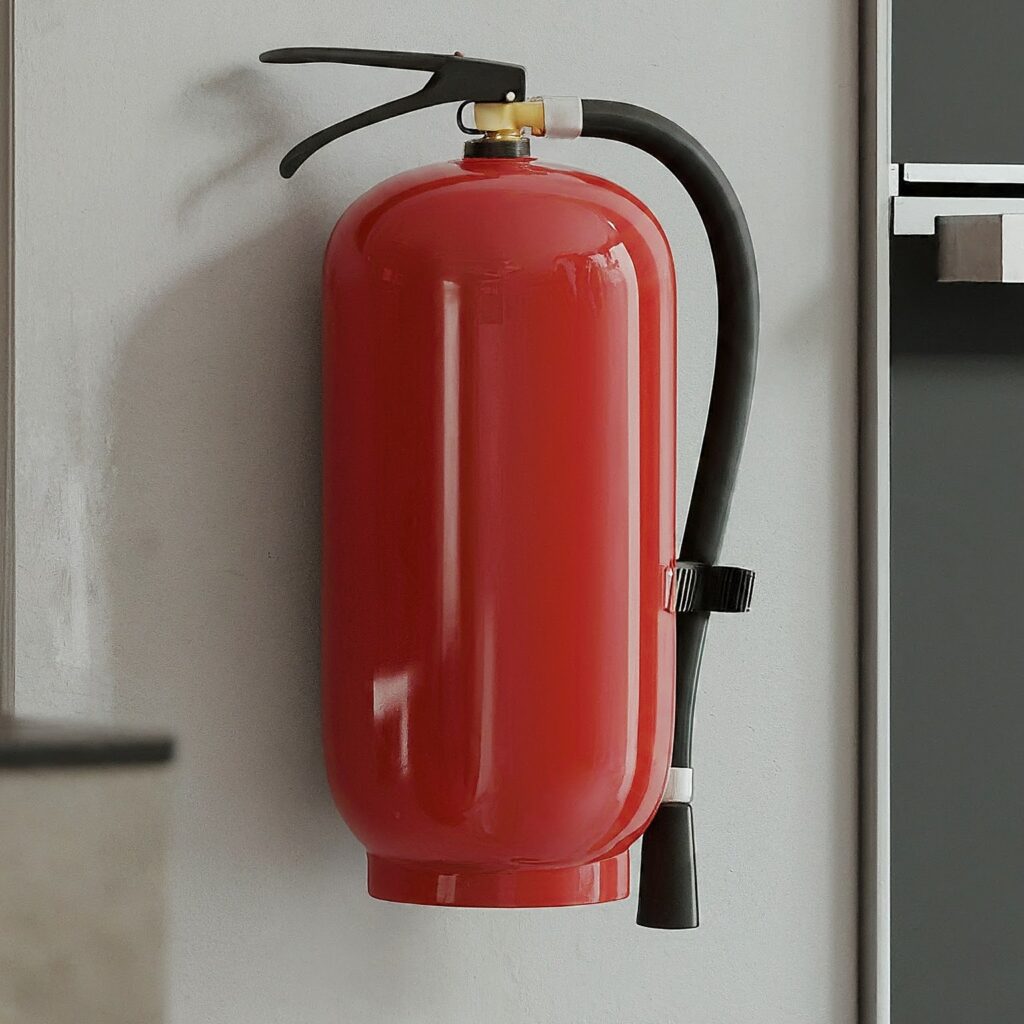A kitchen fire can be a terrifying experience, but staying calm and knowing how to react can make all the difference. Kitchen fires are more common than you might think, and according to the National Fire Protection Association (NFPA), cooking is the leading cause of home fire injuries in the United States.
In this blog post, we’ll provide you with essential steps on how to properly extinguish a kitchen fire, keeping you and your loved ones safe

Remember – Safety First!
Before we dive into extinguishing techniques, prioritize safety. If the fire is large or spreading rapidly, evacuate your home immediately and call 911. Never attempt to fight a fire that’s beyond your control.
Types of Kitchen Fires and How to Extinguish Them
There are two main types of kitchen fires: grease fires and oven fires. The way you extinguish each type differs:
- Grease Fires: These are the most common kitchen fires and involve oil or fat.
- Don’t panic! Turn off the heat source immediately.
- Never throw water on a grease fire! Water can spread the flames.
- Smother the flames: If it’s a small fire, carefully slide a lid over the pan to cut off oxygen. A metal baking sheet can also work in a pinch.
- Baking soda or salt: If you can’t use a lid, carefully throw baking soda or salt over the flames to smother them.
- Fire extinguisher: As a last resort, use a Class K fire extinguisher specifically designed for grease fires.
- Oven Fires: These fires can happen due to broilers left on or excessive heat.
- Turn off the oven: Locate the oven’s shut-off switch and turn it off.
- Leave the door closed: This will starve the fire of oxygen.
- Never open the oven door: Opening it can introduce fresh oxygen and intensify the flames.
- some more
- Electrical Fires: Faulty wiring or overloaded circuits can lead to electrical fires in the kitchen. These fires require special considerations due to the presence of electricity.
- Combustible Material Fires: Items such as paper towels, dishcloths, and packaging materials can easily catch fire if they come into contact with a heat source.
Additional Tips for Kitchen Fire Safety
- Stay alert while cooking: Never leave pots or pans unattended on the stove, especially when frying food.
- Keep flammable materials away from the stove: This includes oven mitts, towels, or pot holders.
- Clean up spills immediately: Grease buildup on your stovetop can increase the risk of fire.
- Maintain your oven and stove: Have a qualified technician regularly inspect and service your appliances.
- Install a fire extinguisher: Keep a Class K fire extinguisher readily available in your kitchen, and ensure everyone in your household knows how to use it.
- Use Baking Soda or Salt: If the fire is still small and contained, you can try extinguishing it with baking soda or salt. Sprinkle either substance over the flames until they are completely smothered. Avoid using flour or baking powder, as they can make the fire worse.
- Never Use Water on Grease Fires: This cannot be stressed enough – never attempt to extinguish a grease fire with water. Water will cause the grease to splatter and spread the fire rapidly, putting you at serious risk of injury.
- Evacuate and Call Emergency Services: If you are unable to extinguish the fire quickly and safely, evacuate the premises immediately and call the fire department. Do not attempt to re-enter the building until it has been declared safe by the authorities.
- Bonus Tip: Practice your fire escape plan regularly. Conduct fire drills with your family and designate meeting points outside your home.
Preventing Kitchen Fires
While knowing how to extinguish a kitchen fire is essential, prevention is always the best strategy. Here are some tips to help prevent kitchen fires:
- Never leave cooking food unattended.
- Keep flammable objects such as dishcloths and paper towels away from heat sources.
- Clean grease buildup from stovetops and exhaust hoods regularly.
- Install a smoke detector in or near the kitchen and test it monthly.
- Keep a fire extinguisher in the kitchen and know how to use it.
By following these tips and being prepared, you can minimize the risk of kitchen fires and ensure the safety of yourself and your loved ones. Remember, when it comes to fire safety, knowledge is power. Stay informed, stay vigilant, and stay safe.


